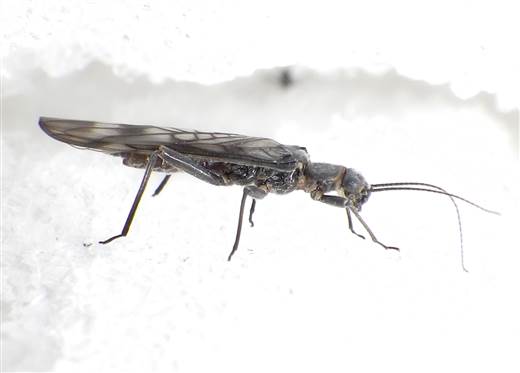Climate Change’s Effects on Glacier Stoneflies Spur Lawsuit

BILLINGS, Mont. — Wildlife advocates asked a judge Wednesday to force federal officials to decide if a rare aquatic insect that’s found only in Montana’s Glacier National Park should be protected under the Endangered Species Act.
Western glacier stoneflies were first identified by scientists in 1963. They live in streams fed by cold water from glaciers in northwest Montana. Those glaciers are predicted to vanish by 2030 — in part because of warmer temperatures due to climate change — and researchers say the stoneflies also could disappear.
In a Wednesday lawsuit, the Center for Biological Diversity said the U.S. Fish and Wildlife Service failed to follow through on a 2011 finding that protections might be needed for the insects. The group asked U.S. District Judge Emmet Sullivan in Washington, D.C., to declare that the agency violated federal law by not issuing a final determination on whether the species should be listed as threatened or endangered.
Even if the group prevails, it’s uncertain what can be done to preserve the insects. “The difficult thing about listing a species based on climate change is we don’t really know what to do about it,” said Joe Giersch, a U.S. Geological Survey scientist. When Giersch and other researchers recently looked for the insects in six streams that stoneflies historically occupied, they found them in only one.
There have been preliminary discussions among biologists about raising glacier stoneflies in laboratories and seeding different streams with the species. Giersch said it’s unclear if the insects could survive, because the new streams likely would be warmer than those with native glacier stonefly populations.

